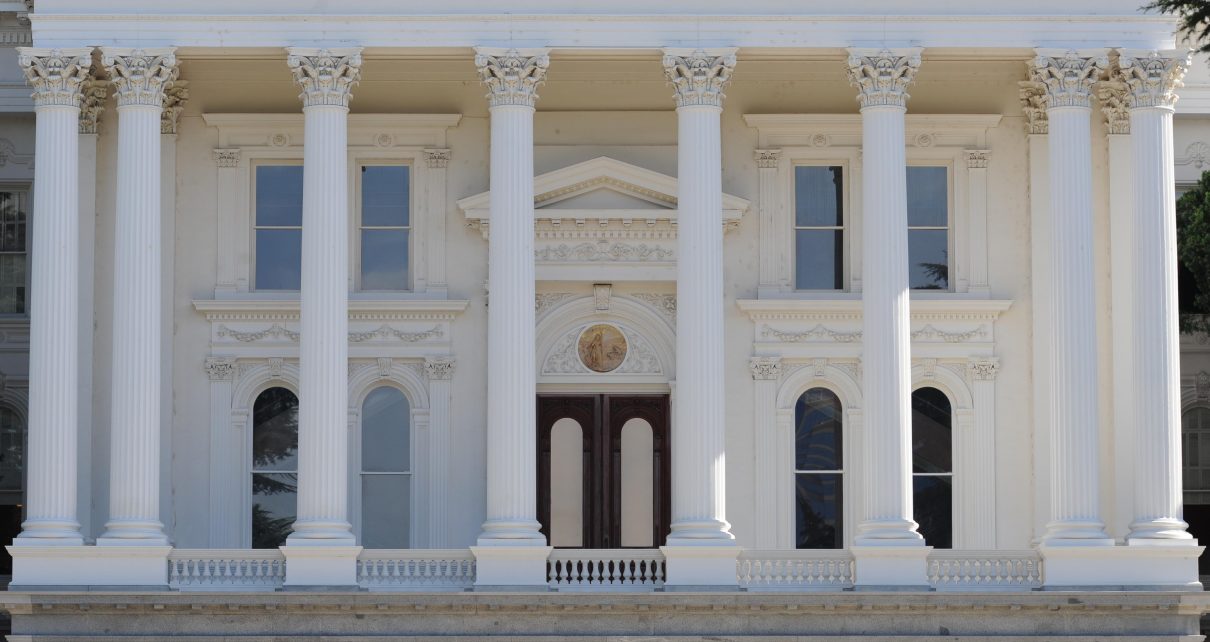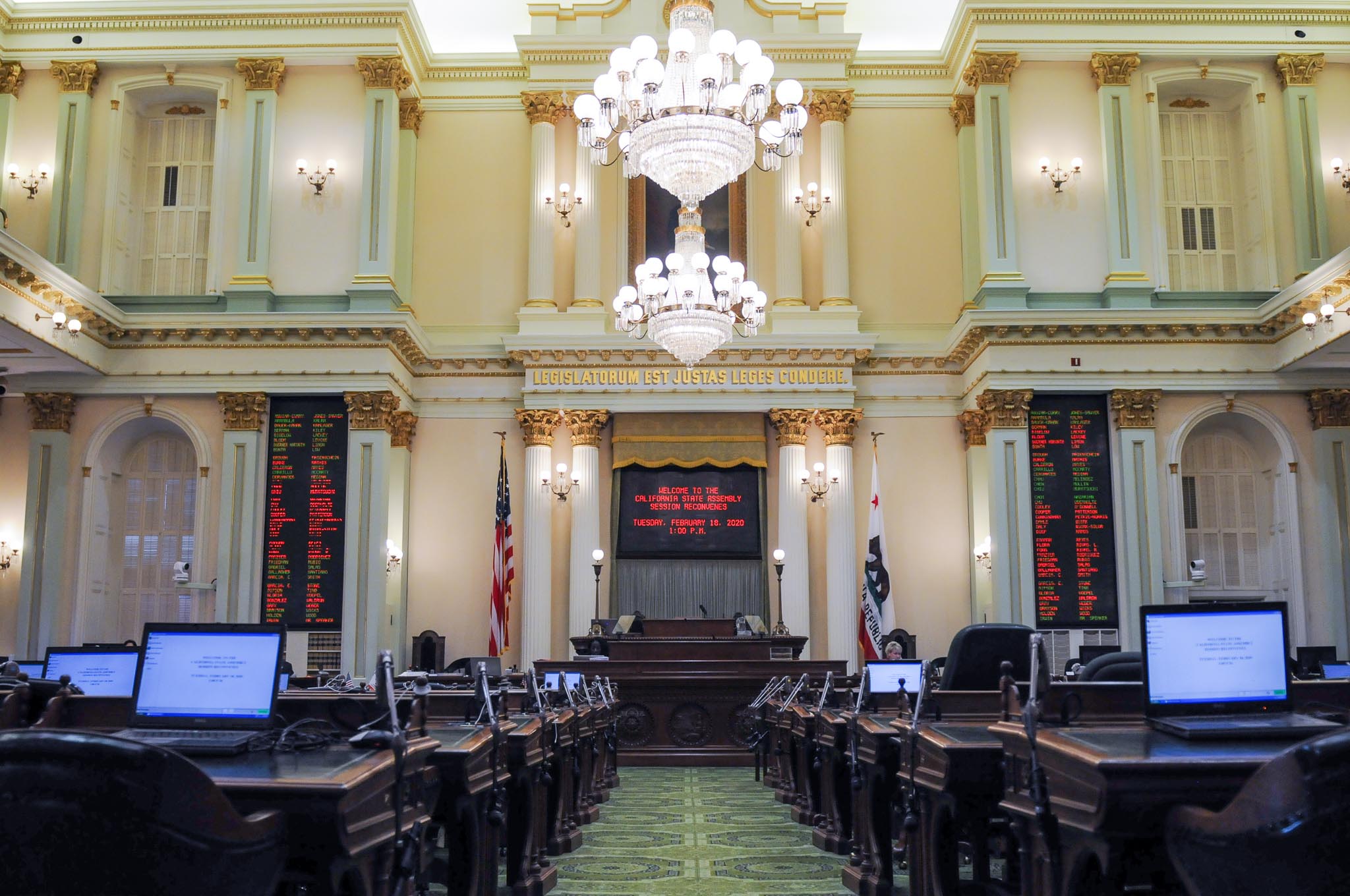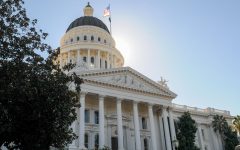
California State Capitol. (Photo: Kevin Sanders for California Globe)
Some California Constitutional Provisions Can Be Waived
There is only one other constitutional provision that can be waived by a vote
By Chris Micheli, January 6, 2022 3:33 pm
When the Legislature initially followed the Governor’s shelter at home order and passed two budget-related bills on March 16, 2020, it required waiver of two constitutional requirements. The first was the required three readings of a bill prior to its floor vote. The second was the required 72 hours in print rule for bills in their final form before a floor vote.
Two Senate Bills that day (SB 89 and SB 117) were amended and dealt with appropriations to address the COVID-19 pandemic. Two provisions of the California Constitution presented hurdles that needed to be waived before the Legislature could pass those two appropriations bills and send them to the Governor for signature.
The first provision is contained in Article IV, Section 8(b)(1) which reads, in part, “No bill may be passed unless it is read by title on 3 days in each house except that the house may dispense with this requirement by rollcall vote entered in the journal, two thirds of the membership concurring.” This requires a bill to be read on three separate days before it can be passed.
The second provision is contained in Article IV, Section 8(b)(2) which reads, “(2) No bill may be passed or ultimately become a statute unless the bill with any amendments has been printed, distributed to the members, and published on the Internet, in its final form, for at least 72 hours before the vote, except that this notice period may be waived if the Governor has submitted to the Legislature a written statement that dispensing with this notice period for that bill is necessary to address a state of emergency, as defined in paragraph (2) of subdivision (c) of Section 3 of Article XIII B, that has been declared by the Governor, and the house considering the bill thereafter dispenses with the notice period for that bill by a separate rollcall vote entered in the journal, two thirds of the membership concurring, prior to the vote on the bill.” This requires a bill to be in its final form for 72 hours before either house of the Legislature can pass it, with one exception.
On March 16, the first constitutional provision was waived. A resolution was adopted by the Assembly and later by the Senate. It was titled, “Resolution to Dispense with Constitutional Provision.” It read: “Resolved, That Senate Bills Nos. 89 and 117 present a case of urgency, as that term is used in Article IV, Section 8(b)(1) of the Constitution, and the provision of that section requiring that the bill be read on three separate days in each house is hereby dispensed with, and it is ordered that the bills be placed upon their passage, and considered engrossed.” A similar resolution was passed by both houses.
Thereafter, a letter from Governor Newsom was read on the both Floors. That letter read, in part, “The California Constitution generally provides—in Article IV, section 8, subdivision (b), paragraph (2)—that ‘no bill may be passed or ultimately become a statute’ unless it has been ‘printed, distributed to the members, and published on the Internet, in its final form, for at least 72 hours before the vote.’ The Constitution further provides, however, that this 72-hour notice period ‘may be waived’ if the Governor submits to the Legislature ‘a written statement that dispensing with this notice period for that bill is necessary to address a state of emergency… that has been declared by the Governor’ within the meaning of Article XIII B, section 3, subdivision (c), paragraph (2). Today I write to you to state the obvious: we must rise to the challenge facing our state with every tool at our disposal and without a second of delay. We cannot hesitate to meet this moment. Accordingly, I submit to you this written statement that, to address the state of emergency I have declared, it is necessary to dispense with the 72-hour notice period set forth in Article IV, section 8, subdivision (b), paragraph (2) of the California Constitution, as to the following legislation: AB 89 AB 117 SB 89 SB 117”
Upon the delivery of the Governor’s letter, both the Assembly and Senate acknowledged receipt on “this 16th day of March 2020, at 2:19 p.m., of a statement by the Governor, regarding dispensing of the notice period to address a state of emergency, delivered to me personally.”
As a result of the Governor’s letter, the Assembly and Senate adopted a resolution that read, “Resolved, That Senate Bills Nos. 89 and 117 present a case of urgency, as that term is used in Article IV, Section 8(b)(2) of the Constitution, and the provisions of that section requiring that bills with any amendments have been printed, distributed to members, and published on the Internet, in their final form, for at least 72 hours before the vote is hereby dispensed with, and it is ordered that the bills be considered for passage.” Thereafter, the two houses passed SB 89 and SB 117.
Of interest is that there is only one other constitutional provision that can be waived by a vote. Article IV, Section 8(a) reads, “At regular sessions no bill other than the budget bill may be heard or acted on by committee or either house until the 31st day after the bill is introduced unless the house dispenses with this requirement by rollcall vote entered in the journal, three fourths of the membership concurring.” This requires a bill to be in print for 30 days before it can be acted upon in any manner.
- Wildlife Management Areas - March 3, 2026
- County Revenues for Fish and Game - March 3, 2026
- Designating ‘Spot’ Bills in the California Legislature - March 2, 2026





Everyone who knowingly participated in this “Plandemic” has violated their Oath, and should be treated in accordance. It was intended to erode our Constitution, laws, culture, and freedoms… and resulted in the new term as well… “Mass Formation Psychosis.” The Constitution isn’t subject to “minor adjustments” for their convenience, and again, they swore an oath to uphold the US and California Constitutions. Newsom is a globalist (yawn), so no surprise… Never had California and our interests’ at heart. He does what he’s told.